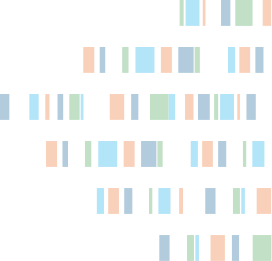The genus Cucurbita (squashes, pumpkins, gourds) contains numerous domesticated lineages with ancient New World origins. It was broadly distributed in the past but has declined to the point that several of the crops’ progenitor species are scarce or unknown in the wild. We hypothesize that Holocene ecological shifts and megafaunal extinctions severely impacted wild Cucurbita, whereas their domestic counterparts adapted to changing conditions via symbiosis with human cultivators. First, we used high-throughput sequencing to analyze complete plastid genomes of 91 total Cucurbita samples, comprising ancient (n = 19), modern wild (n = 30), and modern domestic (n = 42) taxa. This analysis demonstrates independent domestication in eastern North America, evidence of a previously unknown pathway to domestication in northeastern Mexico, and broad archaeological distributions of taxa currently unknown in the wild. Further, sequence similarity between distant wild populations suggests recent fragmentation. Collectively, these results point to wild-type declines coinciding with widespread domestication. Second, we hypothesize that the disappearance of large herbivores struck a critical ecological blow against wild Cucurbita, and we take initial steps to consider this hypothesis through cross-mammal analyses of bitter taste receptor gene repertoires. Directly, megafauna consumed Cucurbita fruits and dispersed their seeds; wild Cucurbita were likely left without mutualistic dispersal partners in the Holocene because they are unpalatable to smaller surviving mammals with more bitter taste receptor genes. Indirectly, megafauna maintained mosaic-like landscapes ideal for Cucurbita, and vegetative changes following the megafaunal extinctions likely crowded out their disturbed-ground niche. Thus, anthropogenic landscapes provided favorable growth habitats and willing dispersal partners in the wake of ecological upheaval.

Home » Gourds and squashes (Cucurbita spp.) adapted to megafaunal extinction and ecological anachronism through domestication
Publications
Gourds and squashes (Cucurbita spp.) adapted to megafaunal extinction and ecological anachronism through domestication
myBaits
Daicel Arbor Biosciences
5840 Interface Dr. Suite 101,
Ann Arbor, MI 48103
1.734.998.0751Ann Arbor, MI 48103
©2025 Biodiscovery LLC
(d/b/a Daicel Arbor Biosciences)
All Rights Reserved.
(d/b/a Daicel Arbor Biosciences)
All Rights Reserved.

 Bluesky
Bluesky